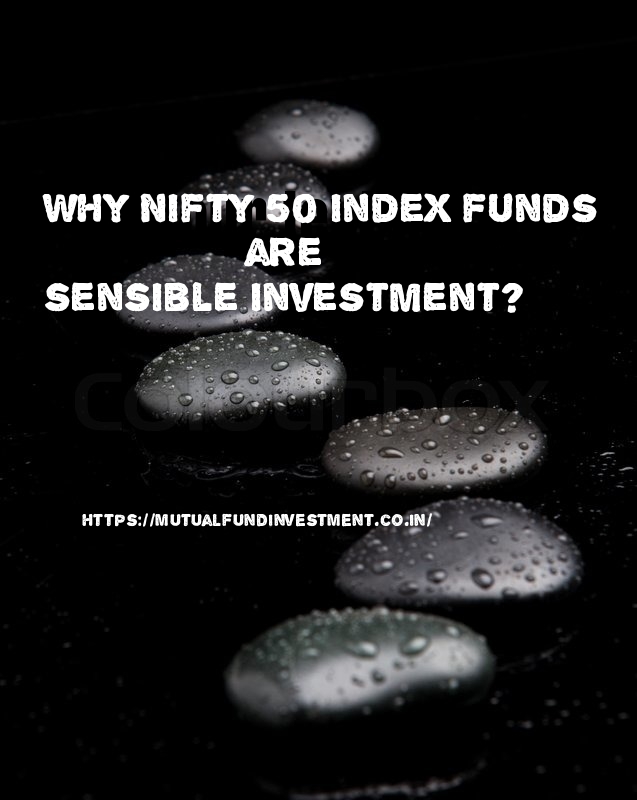Nifty 50 index fund invests in top 50 company of India basis on their market cap and quality factors. It invests top 50 companies in the market for better returns. Why Nifty 50 index funds are sensible investment and how it differs from other blue-chip mutual funds? An index fund is always be low-cost as it is not actively managed by fund manager. The expense ratio of index funds would be range from 0.1% to 0.3%. Active mutual funds expense ratio would be 0.6% to 2% based on mutual fund managers and fund house.
An index fund should always be low-cost
Expense ratio is crucial factors in mutual funds. 1% would impact drastically in long term. Let us take example of 10000 SIP investment in mutual funds for 20 years. Let us take 2 funds. One is active fund and its expense ratio is 1.5%. Another one is passive index funds and expense ratio is 0.2%.
10000 Monthly SIP * 20 Years * 14% = 1.3 crores (expense ratio of the active fund 1.5%)
10000 Monthly SIP * 20 Years * 15% = 1.5 crores (expense ratio of the index fund 0.2%)
In case both funds invests in same funds and it expense ratio differs by 1%, it would increase 20 lakhs in 20 years. For a long term it always good to invest but the only question for retail investor is where to invest or in which company, sector to invest and allocation towards particular sector in respect of total fund. Investing in index fund gives you better returns if you stayed invested in them for a long term duration.
Buffett says index funds are ‘the most sensible equity investment’ for most people
Nifty 50 index stocks are,
-
-
- HDFC Bank Ltd. Banks
- Reliance Industries Ltd. Petroleum Products
- Housing Development Fin. Corp. Ltd.£ Finance
- Infosys Limited Software
- ICICI Bank Ltd. Banks
- Tata Consultancy Services Ltd. Software
- Kotak Mahindra Bank Limited Banks
- Hindustan Unilever Ltd. Consumer Non Durables
- ITC Ltd. Consumer Non Durables
- Larsen and Toubro Ltd. Construction Project
- Bharti Airtel Ltd. Telecom – Services
- Axis Bank Ltd. Banks
- State Bank of India Banks
- Asian Paints Limited Consumer Non Durables
- Bajaj Finance Ltd. Finance
- Nestle India Ltd. Consumer Non Durables
- Maruti Suzuki India Limited Auto
- HCL Technologies Ltd. Software
- NTPC Limited Power
- Power Grid Corporation of India Ltd. Power
- Titan Company Ltd. Consumer Durables
- Sun Pharmaceutical Industries Ltd. Pharmaceuticals
- Dr Reddys Laboratories Ltd. Pharmaceuticals
- UltraTech Cement Limited Cement
- Tech Mahindra Ltd. Software
- Britannia Industries Ltd. Consumer Non Durables
- Coal India Ltd. Minerals/Mining
- Wipro Ltd. Software
- Bajaj Finserv Ltd. Finance
- Mahindra & Mahindra Ltd. Auto
- Bajaj Auto Limited Auto
- Bharat Petroleum Corporation Ltd. Petroleum Products
- Oil & Natural Gas Corporation Ltd. Oil
- Shree Cement Ltd. Cement
- Cipla Ltd. Pharmaceuticals
- Indusind Bank Ltd. Banks
- Hero MotoCorp Ltd. Auto
- Indian Oil Corporation Ltd. Petroleum Products
- Tata Steel Ltd. Ferrous Metals
- Adani Ports & Special Economic Zone Transportation
- Grasim Industries Ltd. Cement
- Eicher Motors Ltd. Auto
- UPL Ltd. Pesticides
- JSW Steel Ltd. Ferrous Metals
- GAIL (India) Ltd. Gas
- Hindalco Industries Ltd. Non – Ferrous Metals
- Bharti Infratel Ltd. Telecom – Equipment & Accessories
- Tata Motors Ltd. Auto
- Vedanta Ltd. Non – Ferrous Metals
- Zee Entertainment Enterprises Ltd. Media & Entertainment
-
Warren Buffett is one of the most iconic and successful investors of our time. Buffett is a master of value investing wherein patience, discipline, and risk aversion are the essential ingredients for success. But he acknowledges that individual stock picking is not for everybody. In fact, most average, long-term investors would benefit from a much simpler strategy, he says: investing in low-cost index funds.
“My regular recommendation has been a low-cost index fund,” Buffett wrote in his 2016 Berkshire Hathaway annual shareholder letter.
Buffett advice to average investors that
-
- Buy a low-cost index fund
- Buy in SIP mode over a period of time
- Hold it for longer term
Warren Buffett thinks index funds are the best way for everyday investors to grow wealth in long term.
How can I invest in Nifty Index Fund?
There are many index funds available in the market. Here the top 6 nifty index funds to start your long term investment. All the funds would be investing to same stocks. There would be no major difference in investment pattern of this funds. You can start any one of fund.
HDFC Index Nifty 50 Growth Direct Fund (Expense ratio : 0.1%)
IDFC Nifty Growth Direct fund(Expense ratio : 0.24%)
UTI Nifty Index Growth Direct fund (Expense ratio : 0.1%)
Nippon India Index Nifty Growth Direct fund(Expense ratio : 0.1%)
ICICI Prudential Nifty Index Growth Direct fund(Expense ratio : 0.1%)
SBI Nifty Index Growth Direct Fund(Expense ratio : 0.29%)
You can login to the respective fund house portal or mutual funds aggregator portal to start your investment in index funds. Nippon India Index Fund allows you to start you investment with monthly 100 rupees in SIP mode. Start now.
Confused on selecting mutual funds? Select Passive mutual funds
Manage all Your mutual funds in one account. MF Aggregator Platforms
Investing in mutual funds for beginners, how to start investing in mutual funds







